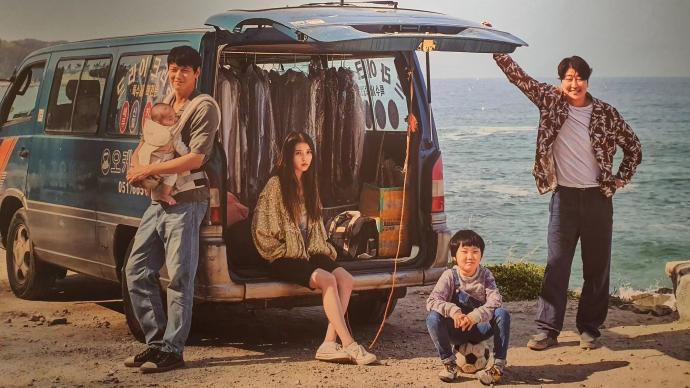
Note: This article contains spoilers
"The Broker" is similar to "The Thief Family" by Hirokazu Koreeda, and describes the story of a group of low-level characters forming a strange family. The special thing is that this is the first film made in Korea by Japanese director Hirokazu Koreeda. The leading actor Song Kanghao also won this year's Cannes Best Actor for this film. At the same time, this is the first time that the three major European film festivals have awarded the Best Actor to a Korean actor.
This transnational cooperation has brought good results to both Korean films and Hirokazu Shiekeda.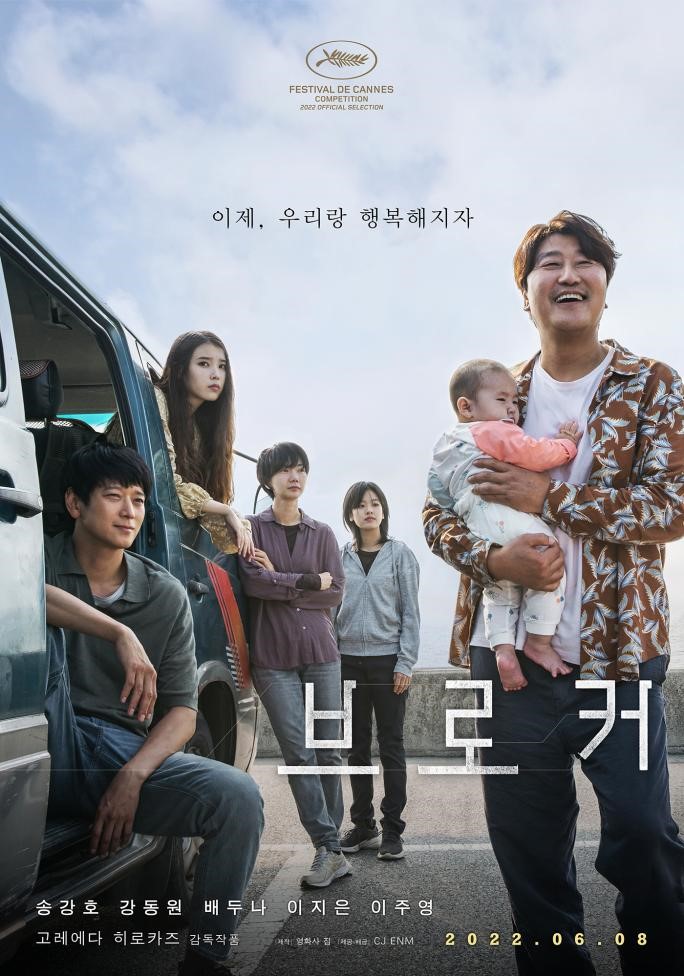
Probably today is Hirokazu Kore's status in the hearts of Chinese movie fans, similar to Shunji Iwai 20 or 30 years ago. Even if he did not deliberately try to please the public, his style was loved by many people, and he inexplicably became the god of literary films.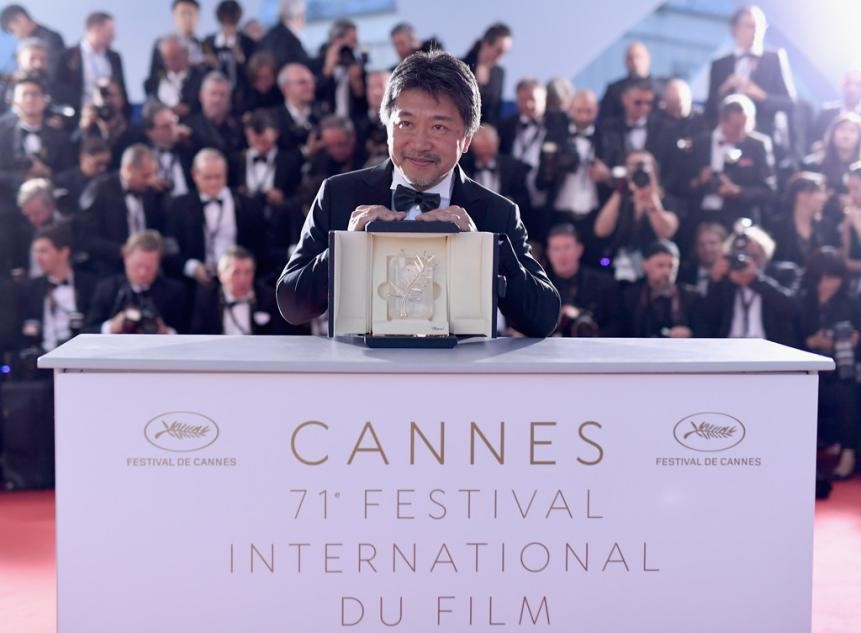
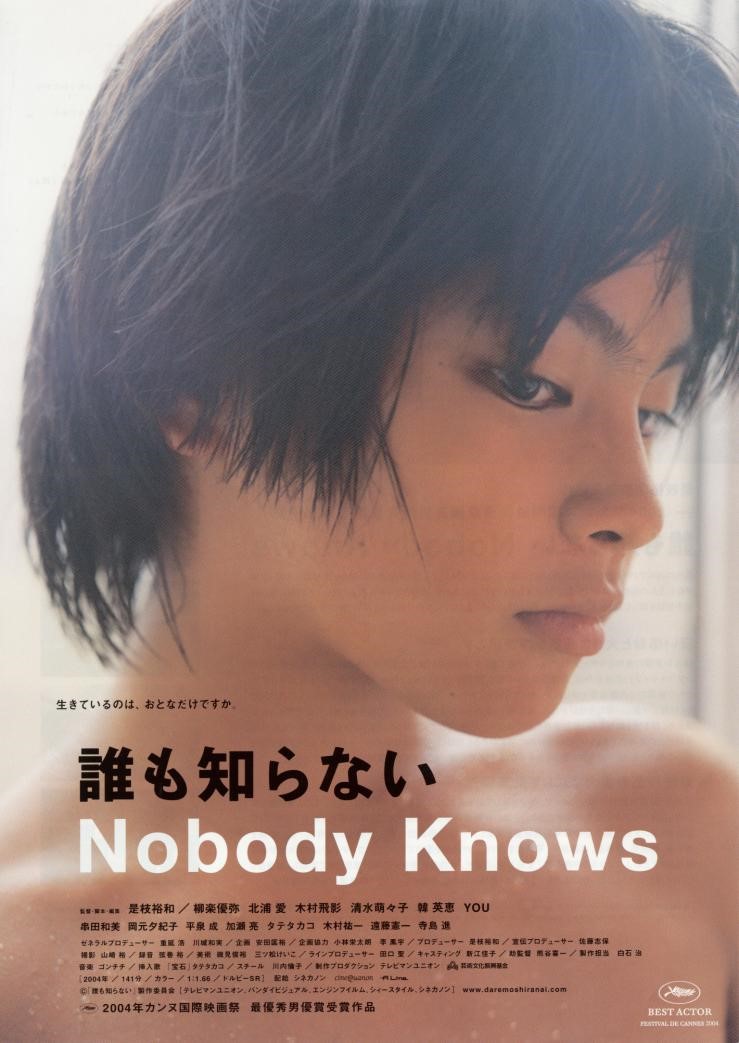
It is Hirokazu Koreeda who is good at taking these subjects that were originally filmed in film and television dramas very vulgar, showing the characters and the environment in a eloquent way, and handling them with a real sense of life. For example, in "Like Father Like Son", the dog-blood story of "discovering that the child who has been raised for many years is not my own" has become full of new vitality, giving people a different viewing experience.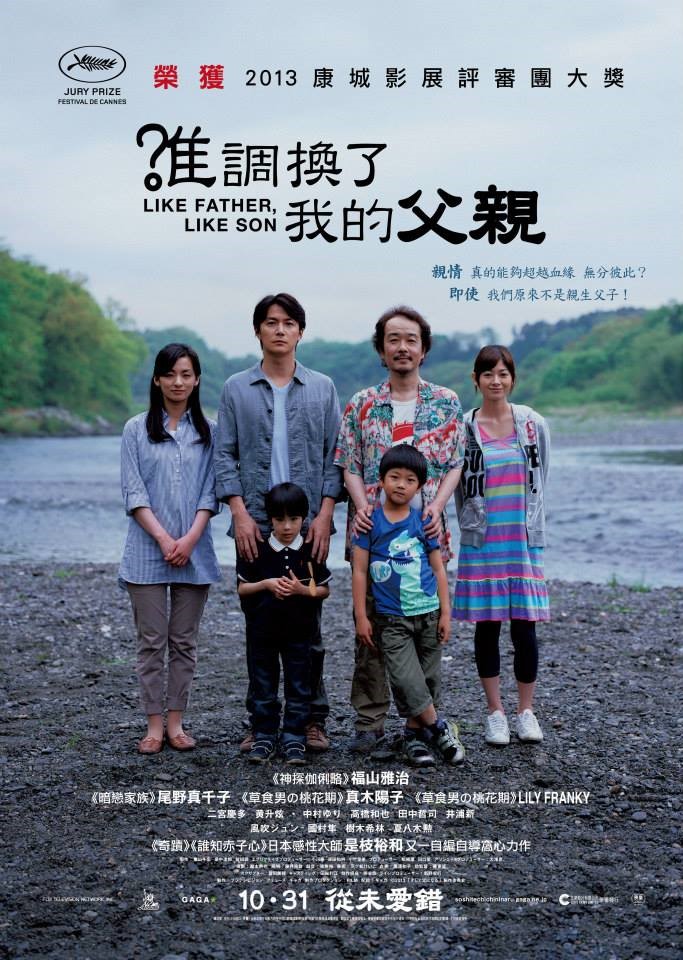
Unlike "thieves", "The Broker" describes two "human traffickers" who sell babies, a "runaway mother" who kills people, and a child who ran out of an orphanage, forming a team to hit the road to find new adoptive parents for the baby. story. Perhaps about the story of "baby trafficking", Hirokazu Kore-eda also felt that there were some moral problems, and arranged another clue to be tracked by the police to balance it. The impact of the vague position of good and evil in the story is more powerful than that of "The Thief Family". "It seems to have weakened a bit. In the story of the film, although from the character's point of view, "infant trafficking" represents a better future for infants, but because of the involvement of the police image, from a social and legal perspective, this matter still remains it's wrong.
But even so, in the eyes of a considerable number of Chinese audiences, it is still psychologically difficult to describe the image of "human traffickers" in such a sympathetic way because of the strong influence of social culture. This is also one of the reasons why the film scored less than 7 points on Douban, setting a new low for Hirokazu Koreeda's works. In the eyes of European and American audiences represented by IMDB, "The Broker" is not the most successful work of Hirokazu Koreeda, but the evaluation of other films hardly exceeds 8 points, which is a normal evaluation for a director of a literary film.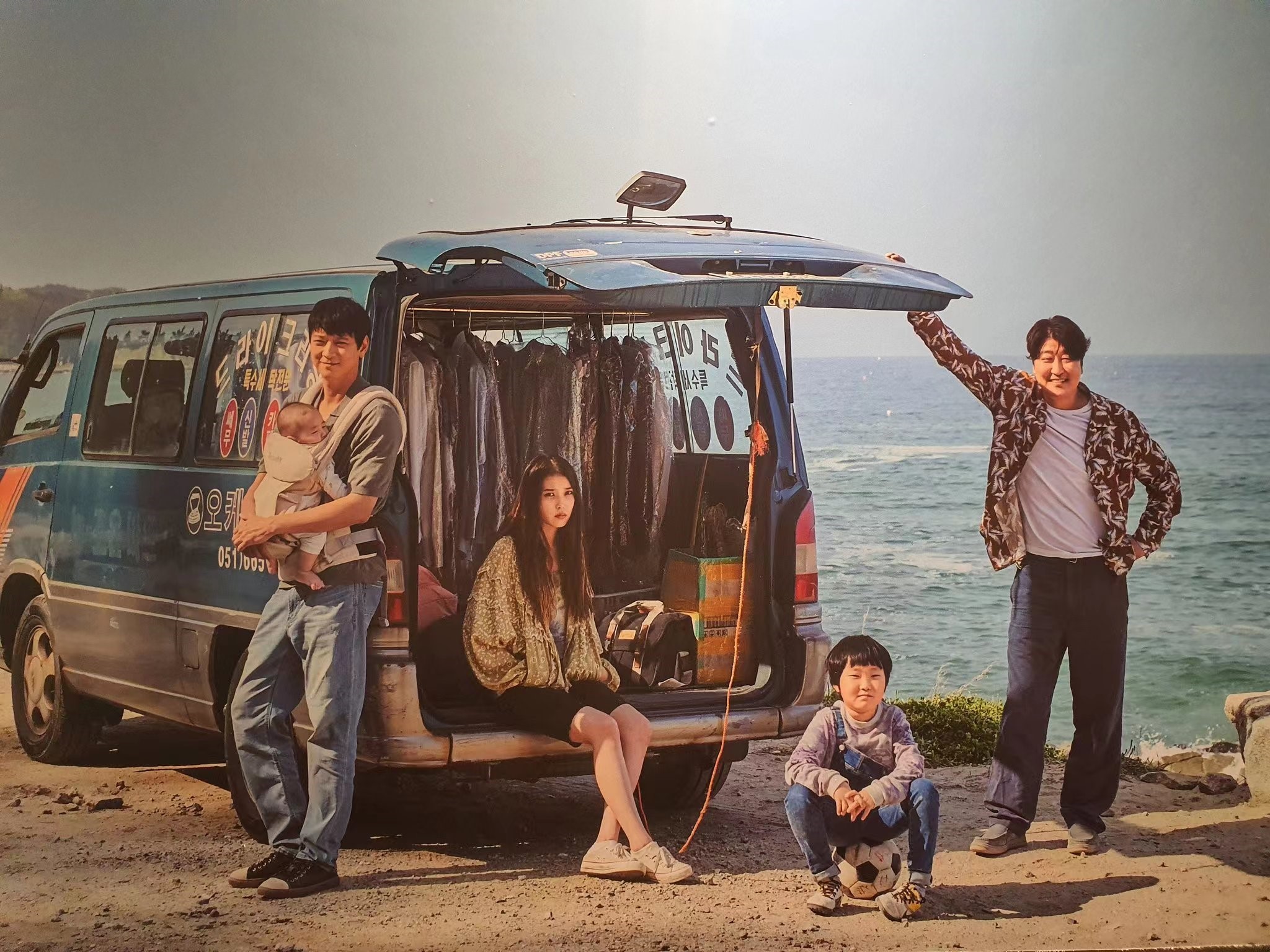
But in The Broker, neither the words "trafficking babies" or "finding a better parent for babies" can hide the violent nature of the matter. A young prostitute who insisted on giving birth to a child killed the father of the child in anger, and then turned around and abandoned the child at the church gate; while the young man who was a church employee was born an orphan back then, but today has become a way of taking advantage of his work. "Brokers" who secretly sell babies. These characters in the film, if not glorified, are hardly regarded as objects of sympathy. What they did did not seem to have much helplessness, but their life choices were deviated.
Even though the film is still very delicately describing the state and predicament of the characters, it is difficult for the audience to identify with the protagonists from the standpoint of Hirokazu Koeda this time.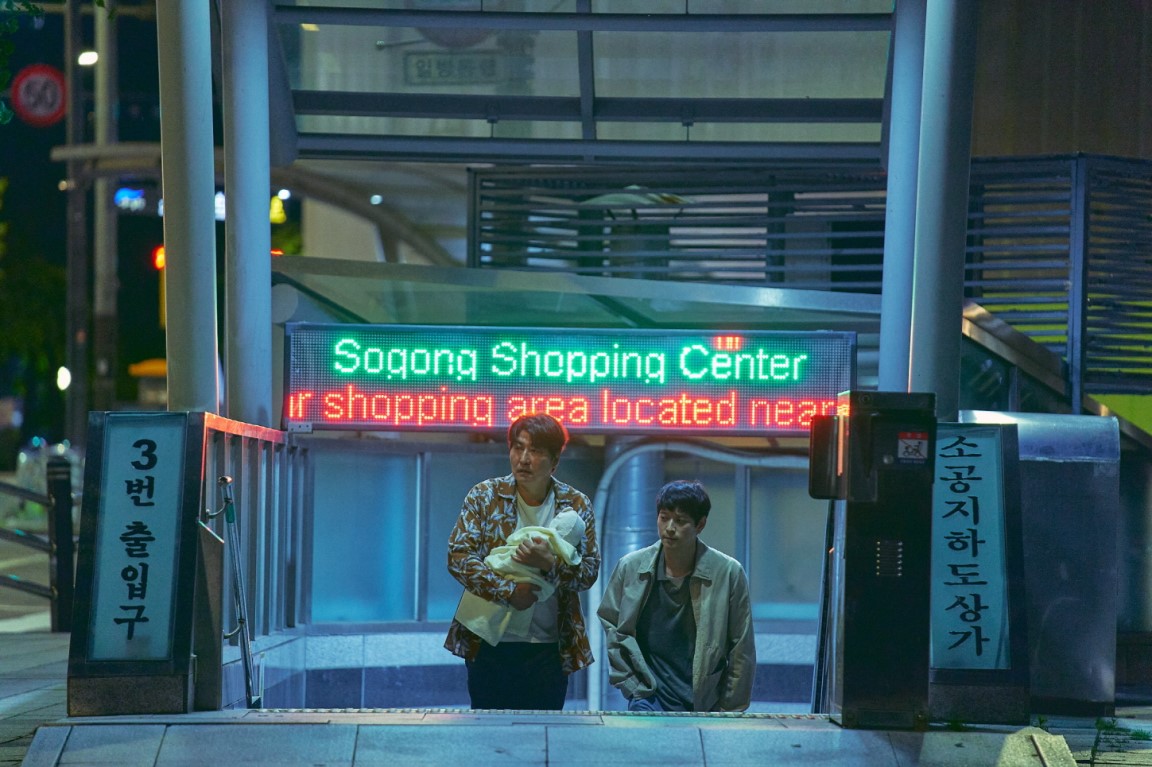
If it is the same story, let a Korean director film it, with actors like Song Kanghao and Bae Doona in charge, and it will be a group show with babies. It will probably be quite lively, and many scenes will have elements of light comedy. And the character's change from being mercenary at the beginning to finally coming to his senses will also be shown very briskly. This is probably the logic of how ordinary Korean commercial films deal with this kind of story: the two evil traffickers, in getting along with the child's biological mother and an orphan, gradually discovered their conscience, and embarked on the road of fighting against the criminal group and surrendering themselves.
Of course, this kind of brisk story processing is often a routine of film and television commercialization, rather than a literary and artistic line like Hirokazu Koreeda that wants to portray the "truth of survival". But from the standpoint of showing the "truth of life", it is obvious that Hirokazu Kore-eda is far less familiar with Koreans, especially ordinary little people, than he is familiar with.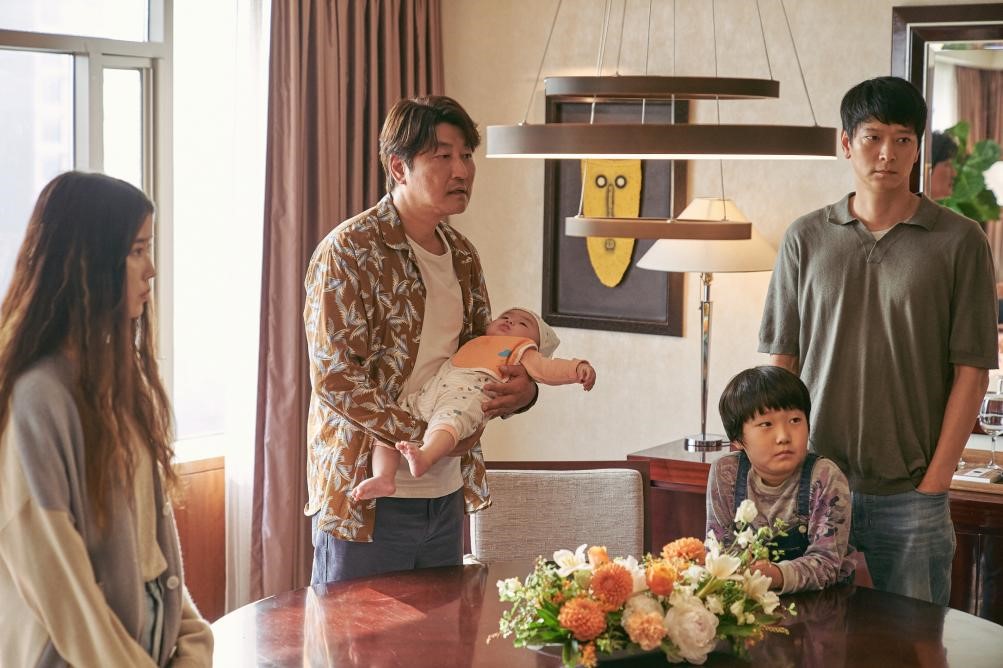
This kind of gratitude ceremony, if it is placed in Japan, which pays attention to etiquette and bows and kneels at every turn, may not be so abrupt. But for the Koreans who often behave in the film, it seems a bit contrived and deliberate. In contrast, the dialogue between the characters supporting each other in the Ferris wheel is much more sincere. After all, the joys and insights of amusement parks are similar in cultures all over the world: at first, they were wanton laughter and frolic, and when they got to the Ferris wheel, they could whisper and be the most intimate moment, which indicates that the happy time of getting along will gradually reach The peak, followed by a downward process, will eventually part ways. Because the amusement park will eventually end, just like any relationship that is difficult to let go.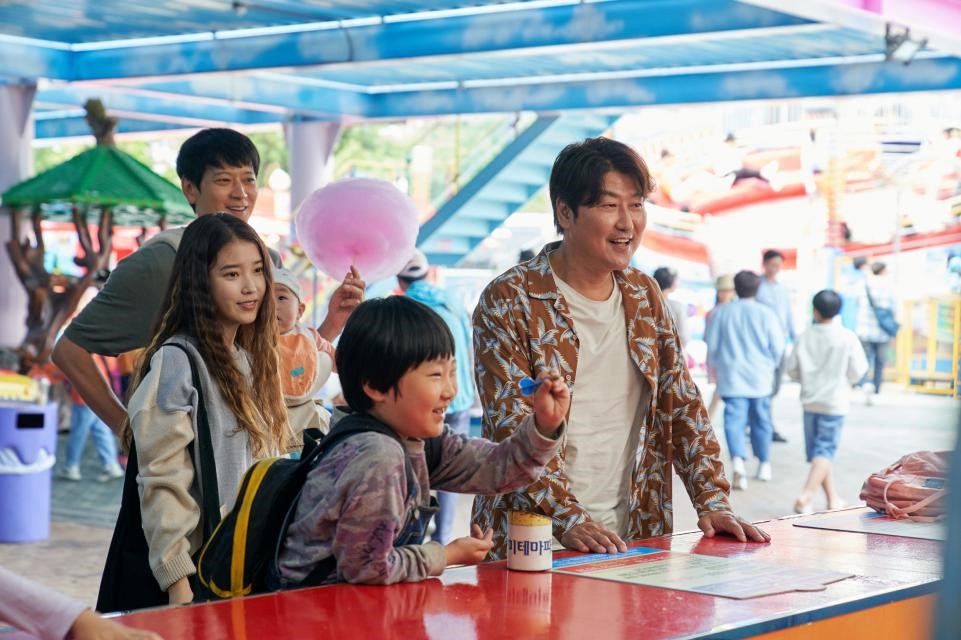
In Cannes, Song Kanghao won the best actor, probably because of the character's deep and introverted way of doing things. He did not clarify the background source in the film, but it has a certain complexity and mystery. This kind of tense character will bring a better reputation for the actor's "acting skills". Although several South Korean actors have performed impressive performances in recent years, their style of publicity and exposure is not as easy to win awards for performances as Jingshui Liushen.
This award is also regarded as the recognition of the overall performance of Korean actors by the mainstream of European literature and art. It is a gratifying event in the development of Korean films.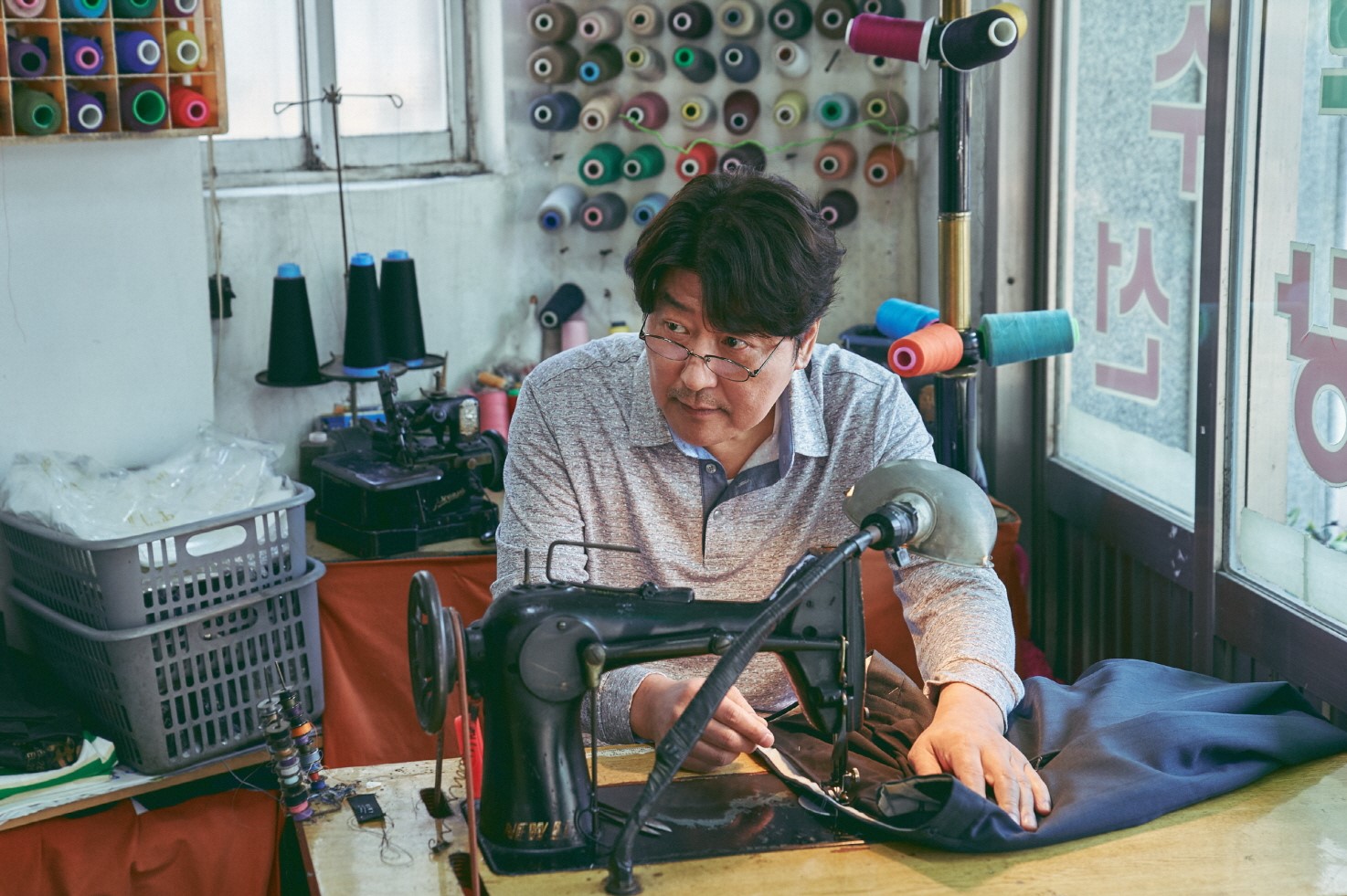
"The Broker" is similar to "The Thief Family" by Hirokazu Koreeda, and describes the story of a group of low-level characters forming a strange family. The special thing is that this is the first film made in Korea by Japanese director Hirokazu Koreeda. The leading actor Song Kanghao also won this year's Cannes Best Actor for this film. At the same time, this is the first time that the three major European film festivals have awarded the Best Actor to a Korean actor.
This transnational cooperation has brought good results to both Korean films and Hirokazu Shiekeda.

The Broker poster
There are also a lot of Chinese film fans who are Hirokazu Koreeda. On Douban, he won the Cannes Palme d'Or four years ago for "The Thief's Family", which not only ranked in the top 250 on Douban, but also scored by nearly 760,000 viewers. When it was released in China that year, the box office score was close to 100 million yuan. . For a literary film, this is an extremely exaggerated achievement.Probably today is Hirokazu Kore's status in the hearts of Chinese movie fans, similar to Shunji Iwai 20 or 30 years ago. Even if he did not deliberately try to please the public, his style was loved by many people, and he inexplicably became the god of literary films.

It was Hirokazu-eda who won the Palme d'Or at Cannes in 2018 for "The Thief."
Unlike Shunji Iwai, who depicts youthful love with romantic light and shadow, Hirokazu Kore-eda continues a certain tradition of Japanese family films. His artistic style is plain, and he mostly depicts the various tests of "family affection" in contemporary society. His earliest debut in Cannes, No One Knows (2004), is about four children abandoned by their mothers, struggling to survive without the help of adults. The film is full of childlike optimism and joy, but it is a huge contrast to the final tragic ending. It also makes Hirokazu Koreeda, a director whose first few works are too poetic and niche, to become a famous director who has attracted much attention.
In 2004's "Nobody Knows", the youngest actor in Cannes so far was born, only 14-year-old Liu Le Youmi. It was Hirokazu Kore-eda who also embarked on the road to winning awards.
Although it was Hirokazu Koreeda who inherited the plain, calm and poetic style of Japanese home movies, his best stories are not everyday contradictions, but "dog blood". The so-called "dog blood" refers to the extreme relationship between the characters in the play, with a strong plot reversal, and various emotional conflicts that make people feel embarrassed. These stories, it can even be suspected that Hirokazu Kore-eda got inspiration from various tabloid news, and then carried out follow-up creations. Of course, for directors, it is not shameful to look for topics from the tabloids. For example, the Spanish director Almodóvar often does this. It's just a way of building the initial theme of the film.It is Hirokazu Koreeda who is good at taking these subjects that were originally filmed in film and television dramas very vulgar, showing the characters and the environment in a eloquent way, and handling them with a real sense of life. For example, in "Like Father Like Son", the dog-blood story of "discovering that the child who has been raised for many years is not my own" has become full of new vitality, giving people a different viewing experience.

Compared with the literary "like father like son", the title and introduction of Hong Kong and Taiwan seem to reveal the popular and "dog-blooded" nature of Hirokazu Kore-eda's story.
Once you are familiar with Hirokazu Kore-eda's style, you can understand that whether it is "The Thief Family" or "The Broker", the core of the film is the bottom-level characters who have encountered brokenness in their lives, and walk together to form a "special family" that supports each other. These "marginal people" involved in abandonment and orphans, or involved in crime, cannot integrate into society normally, but just like ordinary people, they yearn for family affection, and gradually approached in the day-to-day getting along and began to hug together for warmth. Their sense of homelessness and alienation in society, and the peculiar interpersonal relationships they form, constitute the most surprising emotional conflict in the film.Unlike "thieves", "The Broker" describes two "human traffickers" who sell babies, a "runaway mother" who kills people, and a child who ran out of an orphanage, forming a team to hit the road to find new adoptive parents for the baby. story. Perhaps about the story of "baby trafficking", Hirokazu Kore-eda also felt that there were some moral problems, and arranged another clue to be tracked by the police to balance it. The impact of the vague position of good and evil in the story is more powerful than that of "The Thief Family". "It seems to have weakened a bit. In the story of the film, although from the character's point of view, "infant trafficking" represents a better future for infants, but because of the involvement of the police image, from a social and legal perspective, this matter still remains it's wrong.
But even so, in the eyes of a considerable number of Chinese audiences, it is still psychologically difficult to describe the image of "human traffickers" in such a sympathetic way because of the strong influence of social culture. This is also one of the reasons why the film scored less than 7 points on Douban, setting a new low for Hirokazu Koreeda's works. In the eyes of European and American audiences represented by IMDB, "The Broker" is not the most successful work of Hirokazu Koreeda, but the evaluation of other films hardly exceeds 8 points, which is a normal evaluation for a director of a literary film.

"Broker" stills
As mentioned above, Hirokazu-eda's stories are always full of emotional contradictions that make the audience feel ambiguous or difficult to decide. Many times the situations he creates are concise and convincing, and the characters have to face extreme emotional tests that are not common in life but may encounter. s Choice. In the context of Japan's "shame" culture, the apparent calmness of the characters is at the cost of giving up self-esteem to the greatest extent. This makes Hirokazu Kore-eda's films seem to have a serene beauty, but it implies some kind of dark and violent undercurrent.But in The Broker, neither the words "trafficking babies" or "finding a better parent for babies" can hide the violent nature of the matter. A young prostitute who insisted on giving birth to a child killed the father of the child in anger, and then turned around and abandoned the child at the church gate; while the young man who was a church employee was born an orphan back then, but today has become a way of taking advantage of his work. "Brokers" who secretly sell babies. These characters in the film, if not glorified, are hardly regarded as objects of sympathy. What they did did not seem to have much helplessness, but their life choices were deviated.
Even though the film is still very delicately describing the state and predicament of the characters, it is difficult for the audience to identify with the protagonists from the standpoint of Hirokazu Koeda this time.

"Broker" stills
Another thing that makes people feel less smooth is the atmosphere of the film that is different from other Korean films.If it is the same story, let a Korean director film it, with actors like Song Kanghao and Bae Doona in charge, and it will be a group show with babies. It will probably be quite lively, and many scenes will have elements of light comedy. And the character's change from being mercenary at the beginning to finally coming to his senses will also be shown very briskly. This is probably the logic of how ordinary Korean commercial films deal with this kind of story: the two evil traffickers, in getting along with the child's biological mother and an orphan, gradually discovered their conscience, and embarked on the road of fighting against the criminal group and surrendering themselves.
Of course, this kind of brisk story processing is often a routine of film and television commercialization, rather than a literary and artistic line like Hirokazu Koreeda that wants to portray the "truth of survival". But from the standpoint of showing the "truth of life", it is obvious that Hirokazu Kore-eda is far less familiar with Koreans, especially ordinary little people, than he is familiar with.

Babies and dads, the easiest way to write comedy. Of course there is almost no comedy in the film.
In a key emotional scene of the film, everyone turns off the lights in the hotel room, and the child's mother uses a god-like tone to thank everyone around her for being born into this world. This ritual, which would be quite artistic in real life, in the film is a tribute to the difficulty and gratitude of "life", and it is also an emotional repair for every character whose soul has been hurt. This bridge is well designed. The problem is, this may be too Japanese.This kind of gratitude ceremony, if it is placed in Japan, which pays attention to etiquette and bows and kneels at every turn, may not be so abrupt. But for the Koreans who often behave in the film, it seems a bit contrived and deliberate. In contrast, the dialogue between the characters supporting each other in the Ferris wheel is much more sincere. After all, the joys and insights of amusement parks are similar in cultures all over the world: at first, they were wanton laughter and frolic, and when they got to the Ferris wheel, they could whisper and be the most intimate moment, which indicates that the happy time of getting along will gradually reach The peak, followed by a downward process, will eventually part ways. Because the amusement park will eventually end, just like any relationship that is difficult to let go.

"Broker" stills
In the end of the film story, although the "temporary family" disintegrated, everyone seems to be able to enjoy the future reunion and return to life under the sun after taking legal responsibility. Except for "Big Brother" played by Song Kang-ho. He silently eliminated the threat from the gang for everyone, "after all, one person took everything."In Cannes, Song Kanghao won the best actor, probably because of the character's deep and introverted way of doing things. He did not clarify the background source in the film, but it has a certain complexity and mystery. This kind of tense character will bring a better reputation for the actor's "acting skills". Although several South Korean actors have performed impressive performances in recent years, their style of publicity and exposure is not as easy to win awards for performances as Jingshui Liushen.
This award is also regarded as the recognition of the overall performance of Korean actors by the mainstream of European literature and art. It is a gratifying event in the development of Korean films.

"Broker" stills
"The Broker" is not Hirokazu-eda's best work. Fortunately, this transnational cooperation has brought some topics and boosting effects to literary and artistic films in the global epidemic. In fact, literary films, like commercial films, also need "topics and hype". If there is a lack of selling points, the fragrance of wine will be afraid of deep alleys. "The Broker" isn't that memorable, but it's hardly a disappointment either.Related Posts